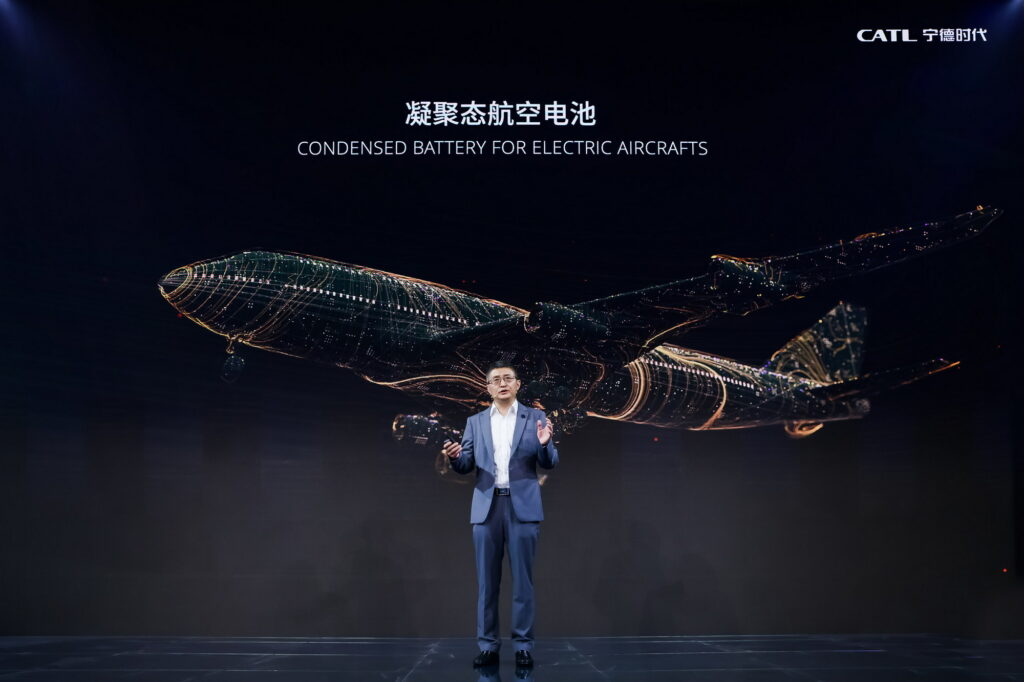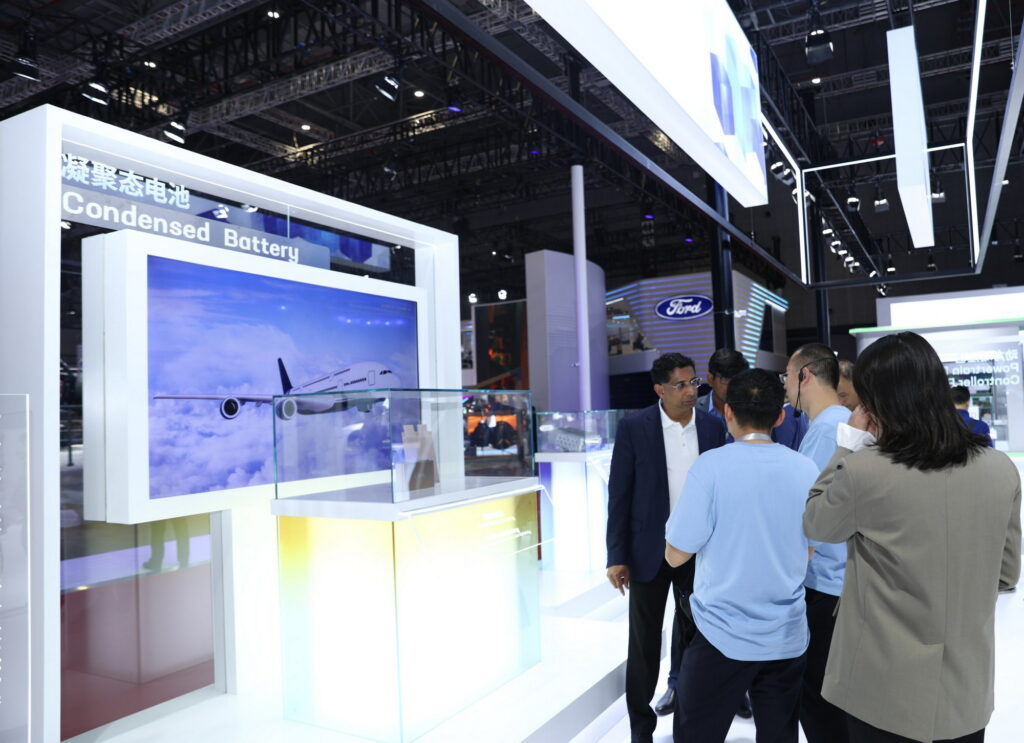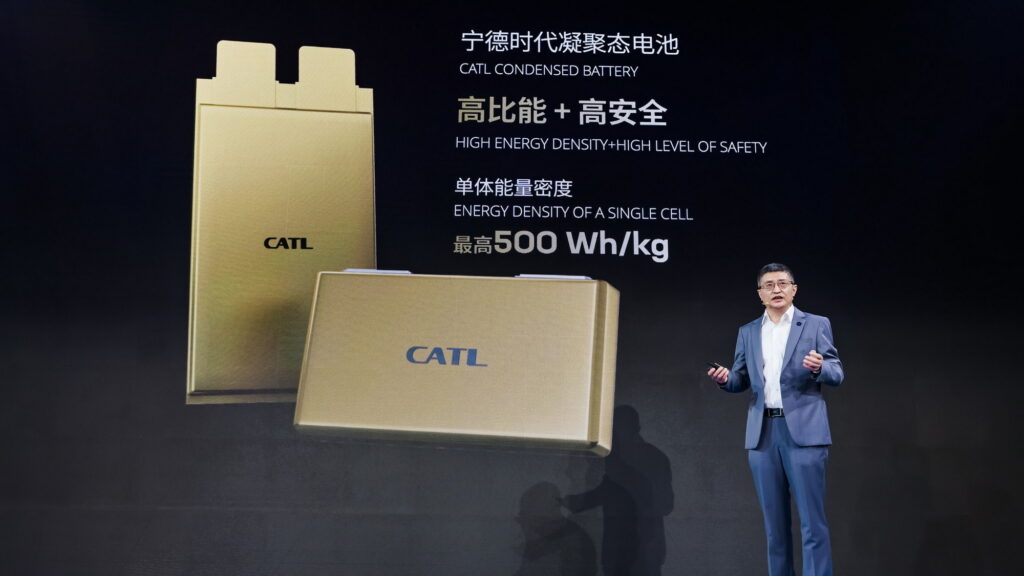CATL claims to be on the brink of a technological turning point for batteries, thanks to technology that offers an energy density of up to 500 Wh/kg. That is enough to go beyond automotive applications, and create all-electric planes, the company claims.
Just the latest battery innovation from CATL, for reference, it says that its sodium-ion batteries have an energy density of 160 Wh/kg. Meanwhile, Tesla’s 4680 battery cells, taken to be some of the most advanced on the market today, have an energy density of up to 296 Wh/kg, per InsideEVs.
CATL can achieve those impressive numbers thanks to new highly conductive biomimetic condensed state electrolyte technology that creates a micron-level self-adaptive net structure that can adjust the interactive forces within the chains to improve conductive performance.
Read: BYD’s Seagull Starts At Just $11,300 And Has Sodium-Ion Battery

The batteries will also use ultra-high energy density cathode materials, and innovative anode and separator materials to offer good charging and discharging performance. In addition, those materials will help make the batteries safe, CATL says.
“The launch of this cutting-edge technology breaks the limits that have long restricted the development of the battery sector and will open up a new scenario of electrification centering on high level of safety and lightweight,” the company wrote in a statement.
It says it is actively working with partners to develop electric passenger aircraft that achieve aviation-level safety standards. The batteries will also be used for automotive applications, and are expected to go into production later this year.
“As electrification extends from the land to the sky, aircrafts will become cleaner and smarter,” wrote CATL. “The launch of condensed batteries will usher in an era of universal electrification of sea, land and air transportation, open up more possibilities of the development of the industry, and promote the achieving of the global carbon neutrality goals at an earlier date.”





